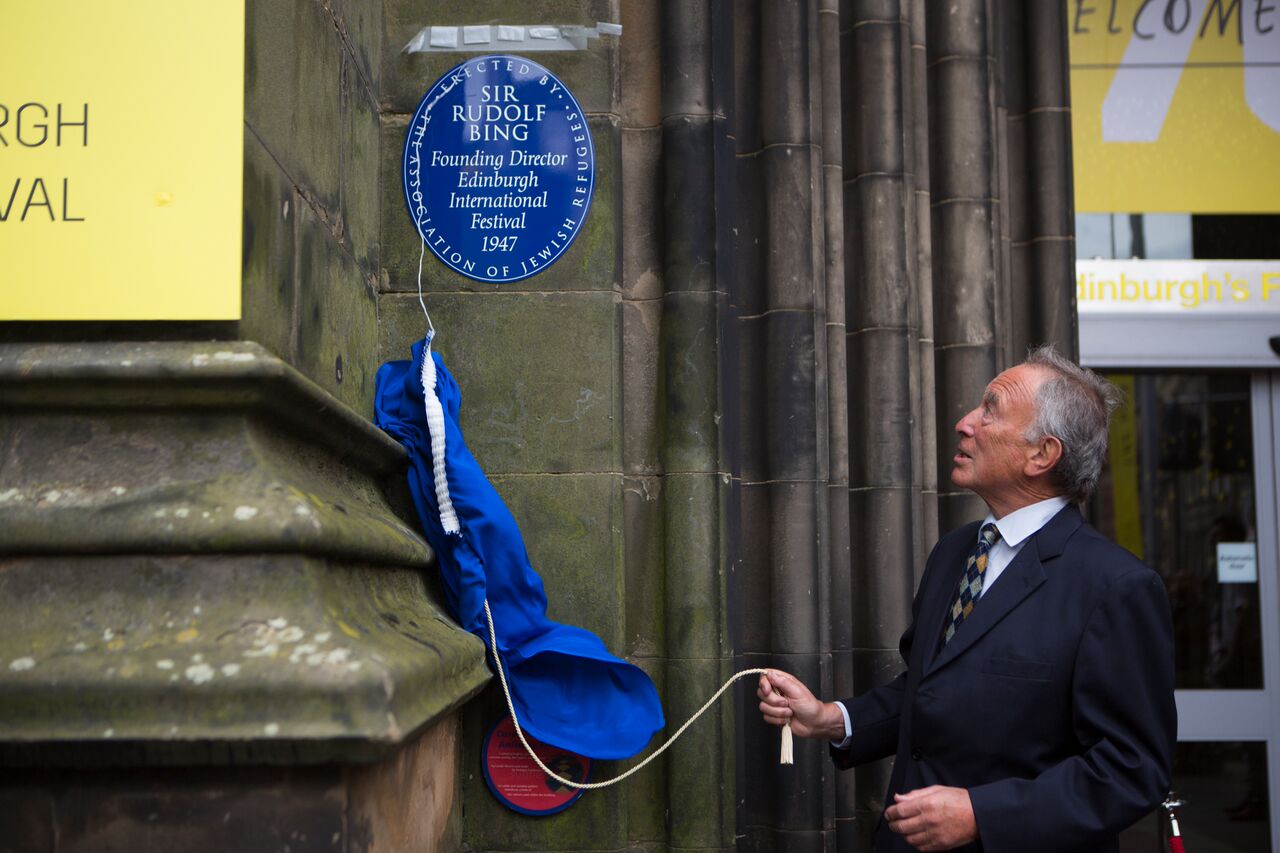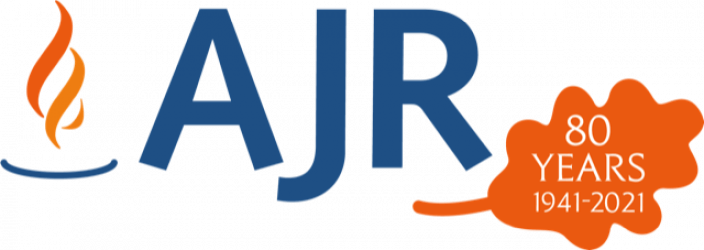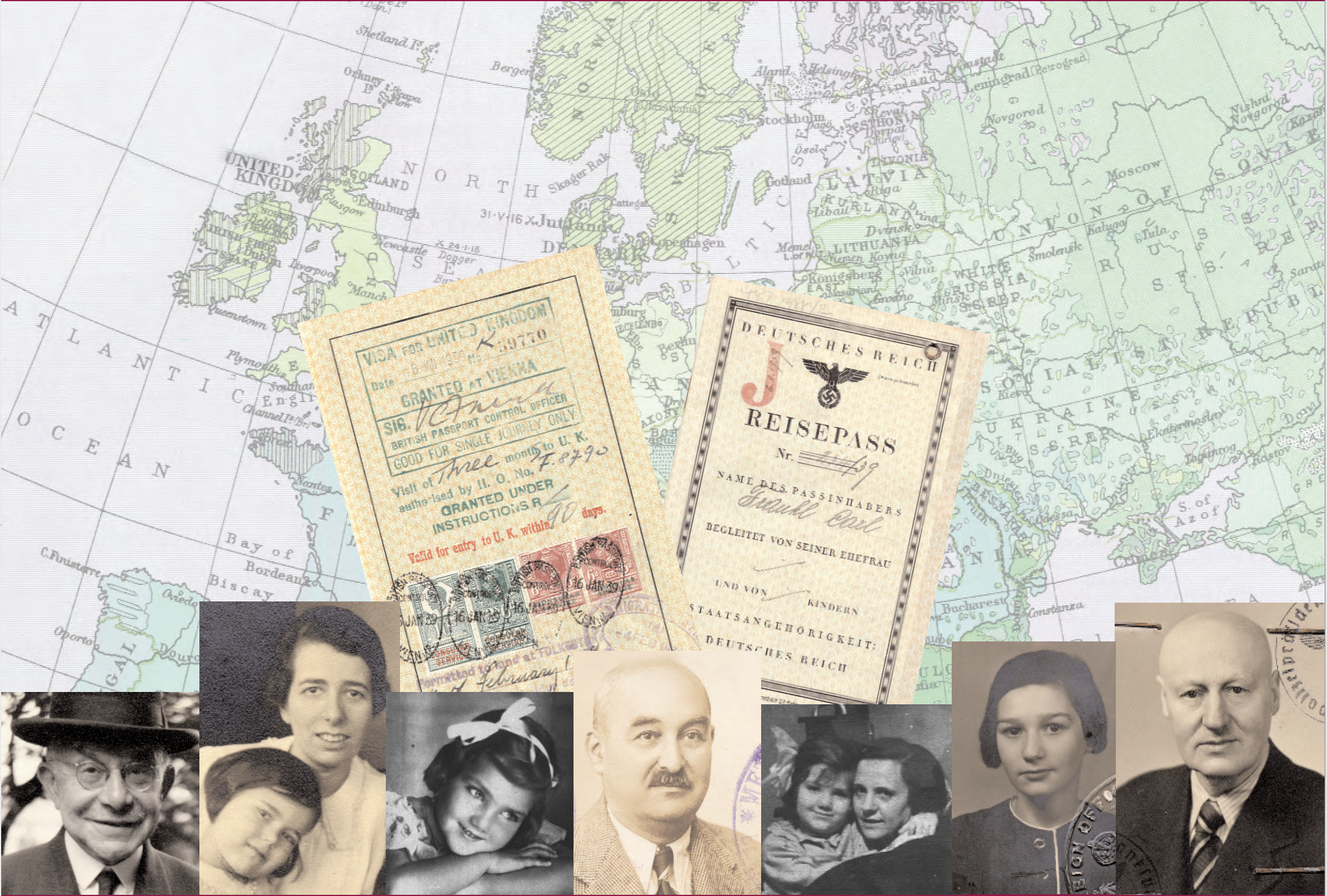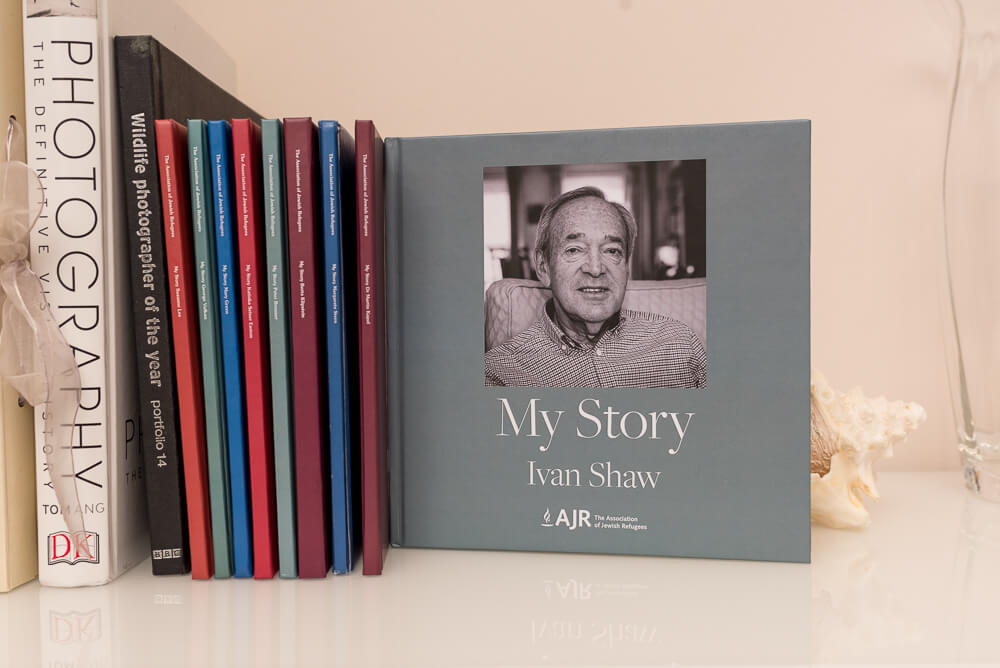As well as supporting educational, research and commemorative projects, the AJR has produced several resources that will help create the legacy of the Jewish refugees and survivors shedding light on how they rebuilt their lives and their remarkable contribution to Britain. Our ground-breaking audio-visual testimony archive Refugee Voices which contains over 200 filmed testimonies is a great example of our work, as is Continental Britons, our Plaque Scheme and My Story life story book project.
Refugee Voices is our groundbreaking Holocaust testimony collection of more than 200 filmed interviews with Jewish survivors and refugees from Nazism who rebuilt their lives in Great Britain. The project is directed by Dr Bea Lewkowicz.
The collection consists of more than 600 hours of film and forms an invaluable resource for academics, researchers, educationalists and others with a professional interest in the field of refugee, migration and Holocaust studies. The collection has been designed precisely with the requirements of scholars and other professionals in mind.
All interviews have been fully transcribed and catalogued enabling a researcher to be able to see an interview and then to read a transcript of the words spoken in it, or vice versa. For ease of reference, both the films and the transcripts are time-coded, making it possible to locate specific passages with a minimum of effort.
Accompanying the collection is a comprehensive database, containing an index of the interviews and details of the interviewees and their life stories. The interviews have been catalogued with 44 separate categories including place of birth, parents’ details, manner of emigration, prisons/camps and profession. This provides a wealth of information to researchers, who can easily locate information relevant to a multitude of specific areas of interest, such as Kindertransport, domestic servants and internment on the Isle of Man as well as interviewees from specific places such as Berlin and Vienna.
Each interview is accompanied by still shots of photos of family members and friends, places of importance for the interviewee and of other items or documents of special significance in the interviewee’s life. These filmed photographs, artefacts, and documents provide a rich source of images for educational or documentary purposes.
In addition to exploring the contribution to Britain made by the refugees, the interviews cover the wide range of experiences of survivors including, amongst others, an interview with a survivor smuggled to safety from Denmark to Sweden, an interview with a woman who was ‘exchanged’ from Bergen Belsen to Switzerland and an interview with the last person alive today who was present at the signing of the Israeli Declaration of Independence. The archive also features interviews with survivors who have rarely spoken about their experiences.
Visit the dedicated Refugee Voices website here
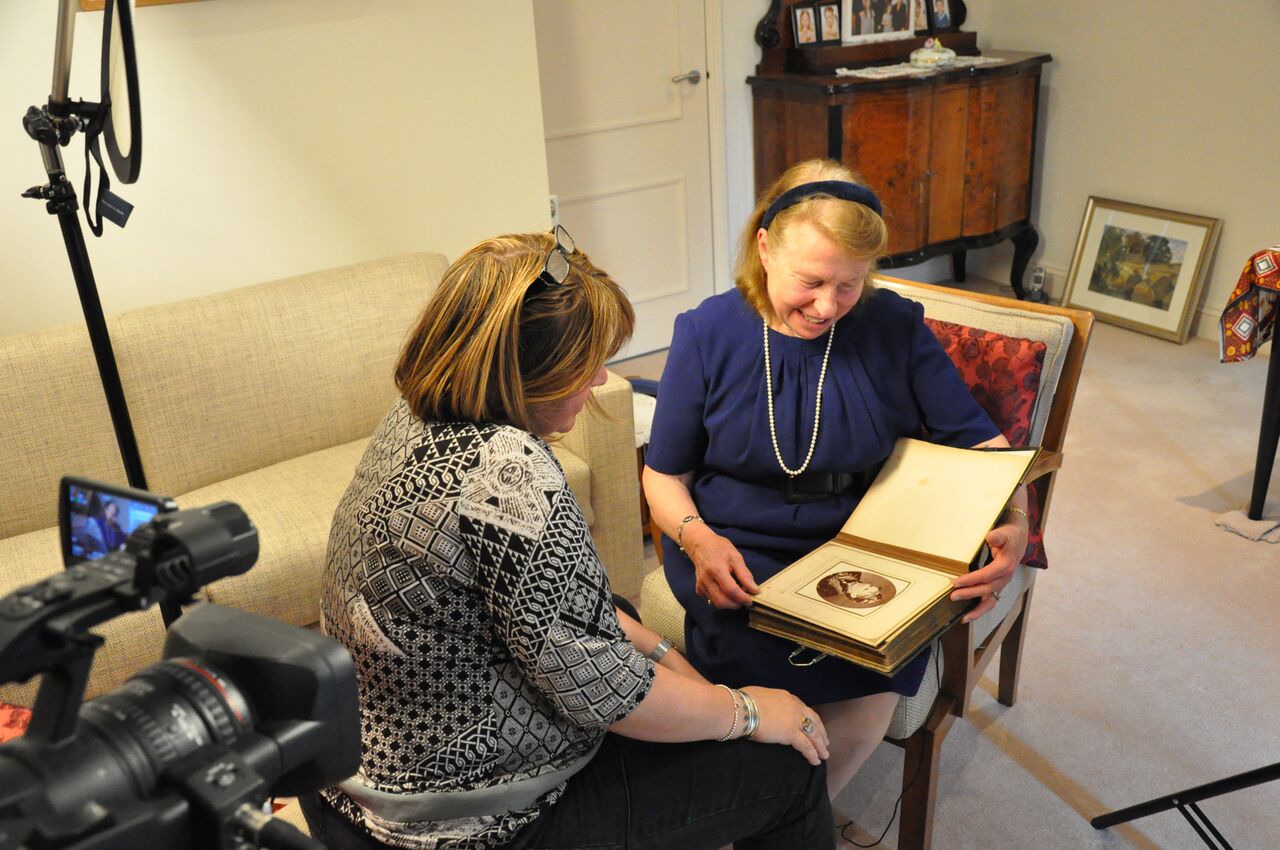
Click here to access our interactive map with more information about each of the commemorative blue plaques we have unveiled to commemorate the lives and works of Jewish refugees in the UK.
Through our plaque scheme, the AJR is establishing permanent memorials to some of the most prominent Jewish émigrés who fled Nazi oppression and found refuge in Britain as well as places and buildings with a strong connection to the Jewish refugees.
The plaques will help form a tangible link between the illustrious earlier residents and the local community as well as fascinating residents and visitors. As well as being instructive and informative, the plaques will help bring the past into the present, and perpetuate the memory of the person being honoured.
The first AJR plaque, to honour the life of Sir Hans Krebs, was unveiled at the Department of Biochemistry in Oxford in May 2013. The second, unveiled in October 2013, commemorates the life of the neurologist and founder of the Paralympics, Sir Ludwig Guttmann and is situated at the National Spinal Injuries Centre, on the site of Stoke Mandeville hospital. In November 2013, we erected a plaque in honour of The Cosmo, a restaurant and famous meeting place of Jewish refugees on the Finchley Road.
In December 2015, we erected a plaque in honour of Leo Baeck, the scholar, teacher and theologian who was a prominent leader of Progressive Judaism at 283 Watford Way, London NW4 the site where Rabbi Baeck lived between 1945 until his death in 1956. In August 2016, we erected a plaque at Glyndebourne in honour of Sir Rudolf Bing, who was General Manager of the auspicious opera venue between 1936 and 1949.
In September 2016, we unveiled a plaque to honour Lord Frank Schon, the Chairman of the National Research Development Corporation who used his position to improve working conditions for industrial workers, at the house in Whitehaven, Cumbria where he and his family lived. In July 2017, we erected a plaque to honour Otto Schiff who was responsible for administering the emigration of tens of thousands of Jewish people from Germany, Austria and Czechoslovakia before the Holocaust. The plaque was at 14 Netherall Gardens in Hampstead which Schiff acquired in the early 1920s for his family home, and converted into offices in the 1930s to confront the refugee crisis.
To mark the 70th anniversary of the founding in 1947 of the International Edinburgh Festival by Sir Rudolf Bing, we erected a second dedication to Bing at The Hub in Edinburgh.
In April 2019, we mounted a plaque at Imperial College for Professor Sir Ernst Chain, who won the Nobel Prize for the discovery of penicillin and who founded the College’s Biochemistry Department.
And, in December 2019 we installed a plaque in honour of Otto Schiff, who founded and directed the Jewish Refugees Committee which helped bring over and settle many of the refugees from Germany and Austria.
